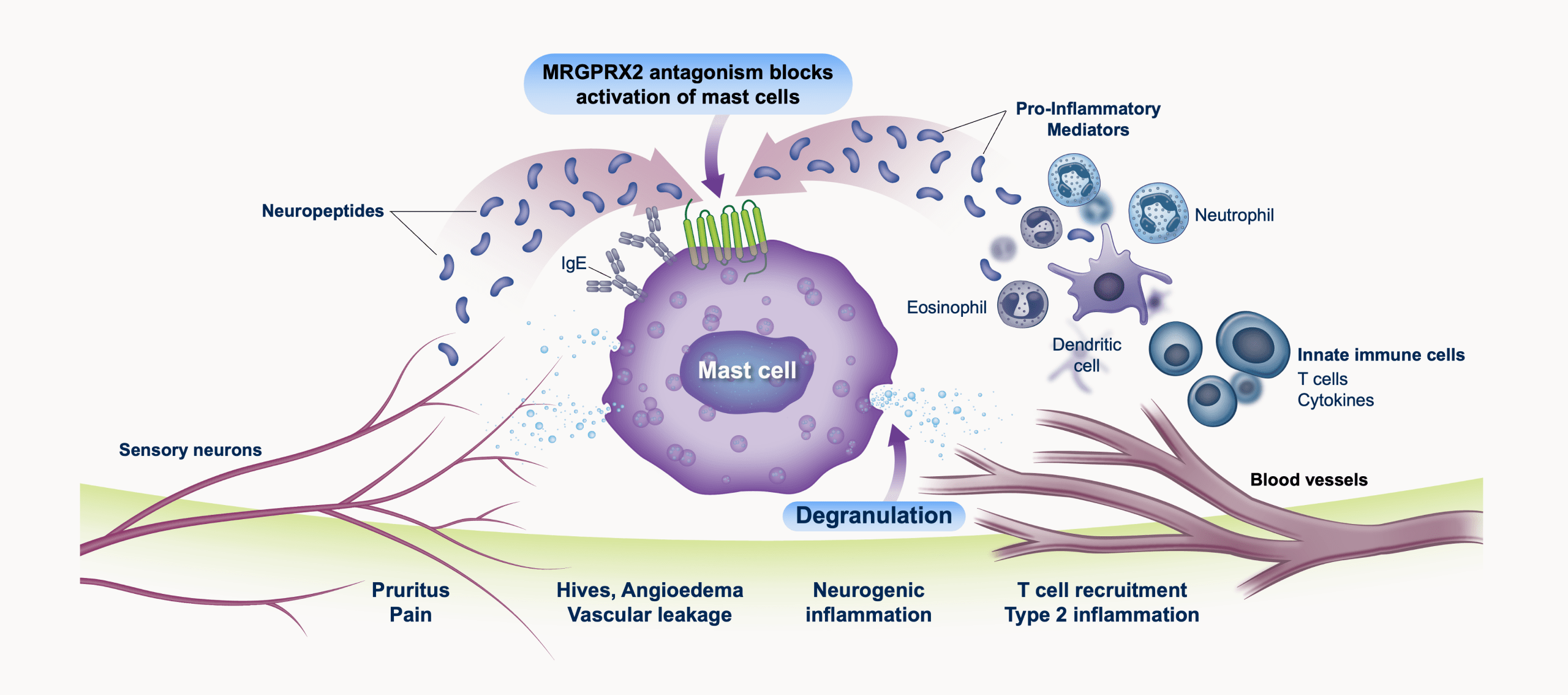Selective modulation of a key mast cell receptor.
MRGPRX2 Antagonist
Mas-related G-protein coupled receptor X2 (MRGPRX2) is most abundantly found on mast cells and may also be expressed on peripheral sensory neurons. Mast cells are the primary effector cells that drive a variety of inflammatory diseases, and targeting mast cells via the selective modulation of MRGPRX2 represents a novel therapeutic approach that may deliver biologic-like efficacy with the accessibility and administration of a small molecule.
Blocking MRGPRX2 has the potential to be a first-in-class oral treatment for a variety of mast cell-mediated diseases, including chronic spontaneous urticaria. In addition, due to its unique function on peripheral sensory neurons, blocking MRGPRX2 could provide fast relief of itch associated with inflammatory diseases, such as atopic dermatitis.

- Chronic Spontaneous Urticaria: Driven by underlying mast cell activity, these patients will develop inflamed lesions nearly every day, occurring on any part of their body. Current treatments offer only symptomatic relief. Blockade of the MRGPRX2 receptor and its subsequent downstream effects provide a novel target for the treatment of this pathology.
- Atopic Dermatitis (AD): Mast cells with MRGPRX2 positivity have been implicated in atopic dermatitis and are known to be in close proximity to peripheral sensory neurons, which also play a role in the itch associated with AD. AD has both an inflammatory component as well as upregulation of neurons creating itch, therefore targeting MRGPRX2 may play a significant role in the treatment of AD by targeting both aspects.
- Inflammatory Itch: This type of chronic itch, also known as pruritus, is a major symptom of many chronic inflammatory conditions. Increased understanding in the neuroimmunology of pruritus provides support for MRGPRX2 as a key receptor driving the release of a wide variety of itch-causing cytokines that are highly upregulated in inflammatory conditions. Treatment of pruritus is challenging, and currently, only limited, short-term, symptomatic relief is available to patients.
- Asthma: Mast cells play a significant role in asthma and tissue remodeling. MRGPRX2 activates mast cells and sensory neurons, leading to airway inflammation, bronchoconstriction, and airway hyperresponsiveness (AHR). Asthmatics have increased numbers of mast cells in bronchial tissues, as well as elevated numbers of MRGPRX2-positive mast cells and MRGPRX2 ligands. Targeting MRGPRX2 may play a significant role in the treatment of both Type-2 high and Type-2 low asthmatics by improving airway obstruction, reducing exacerbations, and alleviating symptoms.